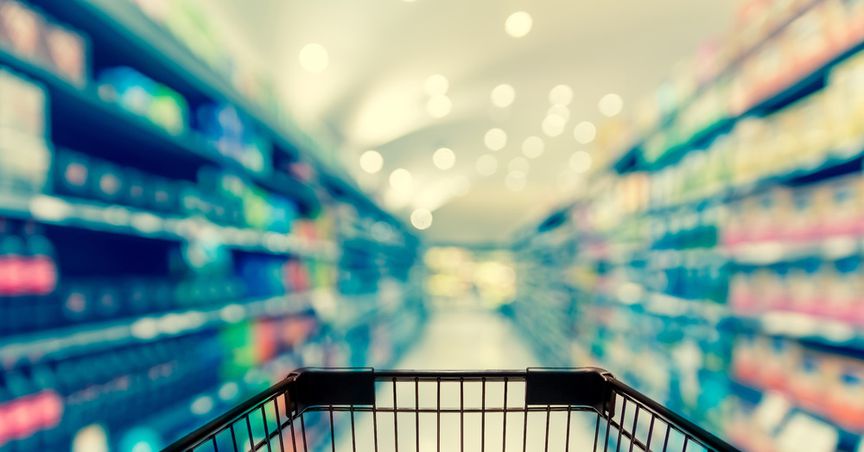Summary
- Continuing with the 2-meter social distancing rule will not allow the industry to bounce back, claims the industry association
- Many retailers may not be able to sustain operations with lower footfalls
- Online retailing continues to prosper
The British retail industry was one of those industries in the country that were very badly hit by the pandemic and the resultant lockdown. Especially the shop floor dependent retailers and supermarkets suffered a lot whose success directly relied on the number of footfalls inside their premises. Only the online retailing branch of the industry was performing well during the lockdown as most people relied on online ordering of essentials to keep themselves provisioned. The government though has decided to open up the economy in a phased manner, with strict social distancing measures in place. These measures though devised to keep people safe will also lead to very few footfall into store and supermarket premises which the Confederation of British industry (CBI) believes will be unsustainable.
The 2 meter social distancing measure as prescribed by the WHO to ensure there is no jump of transmission from one person to another is impractical to implement in most working environments. Even the factories keeping a distance of two metres between employees will not be able to ensure a productive output that may sustain businesses, in most cases. In the case of retail industry where higher sales have a direct co-relation with the number of people coming into a store, i.e. the footfall, maintaining a two meter distance between the customers will be almost as bad as keeping the store closed, for many shops. Most of the retailers that sell small-ticket items need volumes to sustain their businesses.
However, there is a counter view to that. Some experts believe that most customers make buying decisions even before they walk into a store. These customers will visit outlets no matter what the social distancing measures are and would not mind taking the pain. This is especially true with premium brand outlets and high end fashion stores who enjoy strong brand loyalty. But since the premium segment of the entire industry is only a small part of the whole, brand loyalty will not do much good. This, however, is still good news for the industry as many of the standalone stores will now be open and will be able to gain back at least a part of their business.
The government announced a three phased opening of the economy in May this year, with different industries getting preference over the others, with respect to restarting operations. This priority was decided on the risk level of infection that an industry possesses, and each stage was monitored before permission was granted. Because the retail industry functions around large number of footfalls the government has deliberately prioritized it to open in the end, to contain corona infections across the UK. Given the government’s plan, it is unlikely that the industry will get back to its functionality levels before the end of this year or when a suitable vaccine comes forth, and majority of the country’s citizens are vaccinated by it.
The retail industry around the world has given a lopsided performance during the past few months since the pandemic has made it presence felt. While the traditional outlet and supermarket type retailing continued to suffer the online segment of the business registered record growth. Especially groceries and toiletries have been in major demand during the period. People who have been forced to stay indoors due to the fear of contacting the virus, had no other choice but to buy their provisions online and get it delivered at their homes. Several online retailing companies and also supermarket stores sensed the opportunity and massively expanded their online retailing platforms and started servicing the higher demand. Given what the situation over the pandemic is expected to develop over the next few months, the traditional retailing sector is going to make a slow recovery because of the continuation of the social distancing measures, whereas the online segment will continue to expand and will also now include non-essential commodities as government restriction of non-essentials continue to be relaxed.
The sector had given a much-improved sales performance in the month of May 2020 compared to the previous month of April 2020 when the Lockdown was in full force. The British Retail Consortium, the industry body of retail companies in the country, had published its monthly survey update on the performance of the sector last week. The BRC report stated that for the month of May the total sales figures of the industry has registered a drop of 5.9 per cent compared to what they were a year ago. This is a sharp contrast to the drop in sales in the month of April this year which was at 19.1 per cent, which was the second-biggest drop in monthly sales figures since BRC started to conduct its survey in 1995. Thus the performance of the industry for the month of May is a sharp recovery from the lows of April 2020.
The social distancing norms are a reality now and will continue to be in place in some form or the other for a long time. The retail sector thus will have to device innovative methods to increase the footfall in their outlets and supermarkets while protecting their customers and avoid any spread of the virus. The next few months could bring in more challenges to the retail industry and there is a strong possibility that the pandemic may strike again when the winter season arrives. It is, however, still a speculation, but the industry must start to make provisions keeping that possibility in mind.
Let us take a quick look at the performance of two prominent retail companies in United Kingdom since the opening of the lockdown.
Tesco Plc - Tesco Plc (LON:TSCO) is the United Kingdom’s largest retailing company having product range beyond traditional domain of a retailing company. Other than shop floor retailing and online sales, the company also offers personal banking, business banking, mortgage lending, credit cards, insurance, foreign exchange transactions and telecommunication services. The company is known for using its banking services technology to garner market share for its retail division. The company gives its customers Tesco Club points whenever they use its banking services which can later be redeemed while shopping at Tesco outlets.
In 2019 the company earned a total revenue of £63.911 billion, an operating profit of £2.206 billion and a net profit of £1.320 billion.
Since the opening of the lockdown the company has marginally underperformed the market. On 18th May 2020, the shares of the company were trading at GBX 241.90 where as on 18th June 2020 they were trading at GBX 227.00, losing 6.15 per cent.
WM Morrison Supermarkets Plc – (LON:MRW) WM Morrison Supermarkets Plc is the fourth largest retail chains in the United Kingdom.
During the year 2019 the company earned a total revenue of £17.735 billion, with a operating profit of £465 million and a net profit of £244 million.
For the last one month, the company has slightly underperformed on the London Stock Exchange. On 18th May 2020 the shares of the company were trading at GBX 188.85 and on 18th June 2020 they are trading at GBX 187.55 losing nearly 0.68 per cent.




